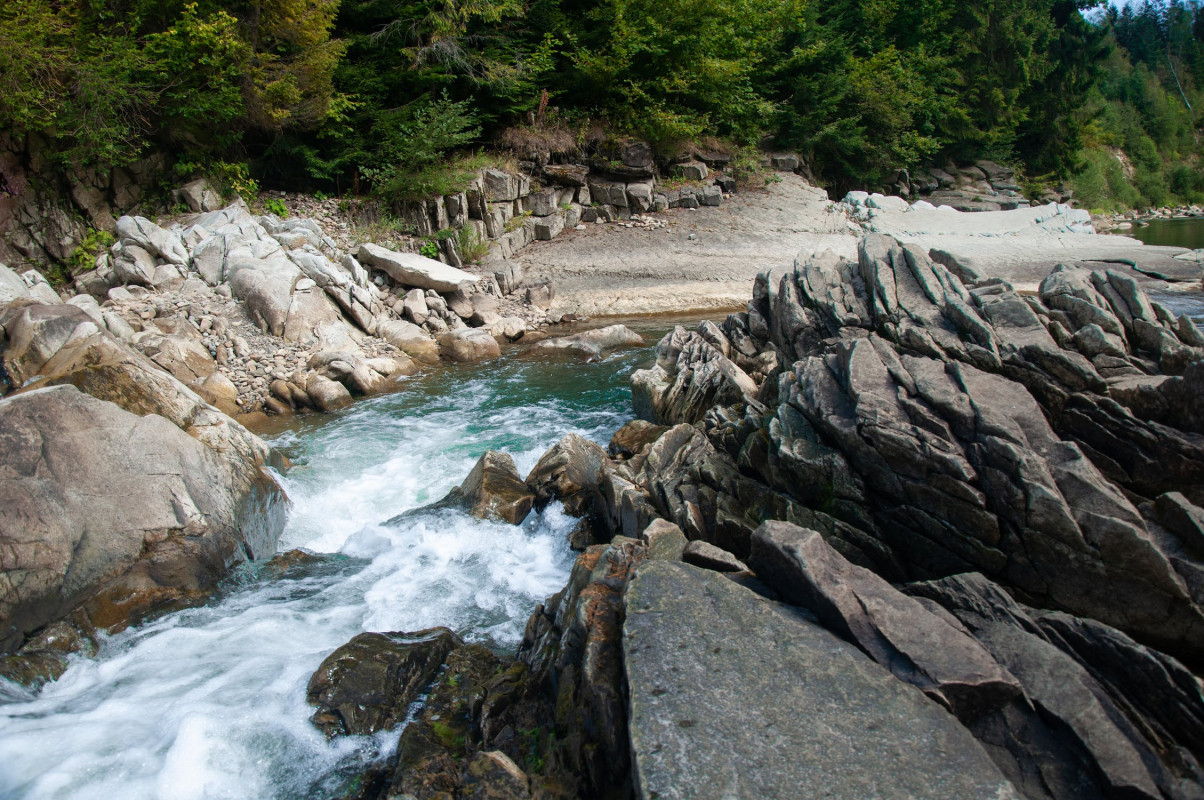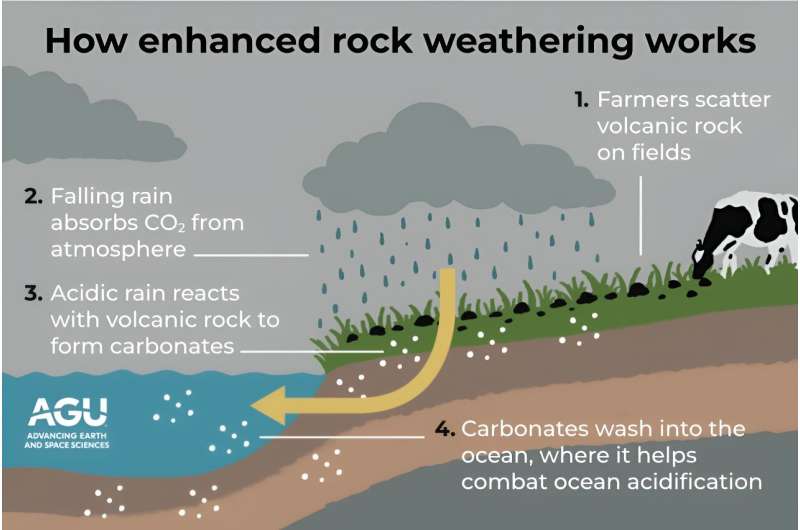 Did you know that spreading crushed volcanic rock on farms may help cool our planet?
Did you know that spreading crushed volcanic rock on farms may help cool our planet?
We know that greenhouse gases from the burning of fossil fuels have been responsible for the global rise in temperature and climate change. These gases have been building up in the atmosphere since the start of the Industrial Revolution.
Even as we take action to reduce emissions, scientists are exploring ways of removing carbon dioxide that is already in the atmosphere. One such approach mimics the natural process of rock weathering by which carbon dioxide is locked away in our oceans. Let's find out more.
Speeding Up A Natural Process
Rock weathering is a natural process that begins when rain, which absorbs carbon dioxide as it falls, meets the ground.
 The acidic rain reacts with minerals in the rocks and soil, forming water-soluble ions such as calcium, magnesium, and bicarbonate (HCO₃-). These are washed away into lakes and rivers and end up in the oceans. Here, they stay in the dissolved state or are used by tiny marine organisms to form shells.
The acidic rain reacts with minerals in the rocks and soil, forming water-soluble ions such as calcium, magnesium, and bicarbonate (HCO₃-). These are washed away into lakes and rivers and end up in the oceans. Here, they stay in the dissolved state or are used by tiny marine organisms to form shells.
When these animals die, their shells settle down on the ocean floor and ultimately turn into limestone and other rocks. In this way, atmospheric carbon dioxide has been trapped in rocks and in our oceans for millions of years.
To speed up this natural process, rocks rich in silicates such as basalt can be ground and spread across farmlands - a process known as "enhanced rock weathering." Scientists have run small field tests and run simulations to test the effectiveness -- and the results are encouraging.
Challenges and Opportunities
Enhanced rock weathering is promising for several reasons. The minerals make the water alkaline and this has the potential to reverse ocean acidification due to climate change (learn more here). A less acidic ocean keeps the animals and plants in the ocean healthier. It also restores nutritious minerals to depleted soils, which increases harvests.
However, there are many challenges before this solution can be implemented on scale. Scientists cannot predict data or outcomes accurately based on lab experiments as climate change is a complex issue. According to UNDO, a company in the UK that is testing the solution, it could take 4 tons of basalt to capture 1 ton of CO2. This is small considering an average resident in the UK releases 7 tons each year!
It is also important that renewable energy be used when grinding the rocks into a powder - using a nonrenewable source would just increase the carbon dioxide emissions. Finally, there are risks of respiratory illnesses, should farmers inhale the rock dust.
Scientists are exploring creative ways to solve the issues and address climate change. Let’s see what they discover next!
Sources: BBC, Nasa, Carbon Brief, Inside Climate News, Anthropocene Magazine






